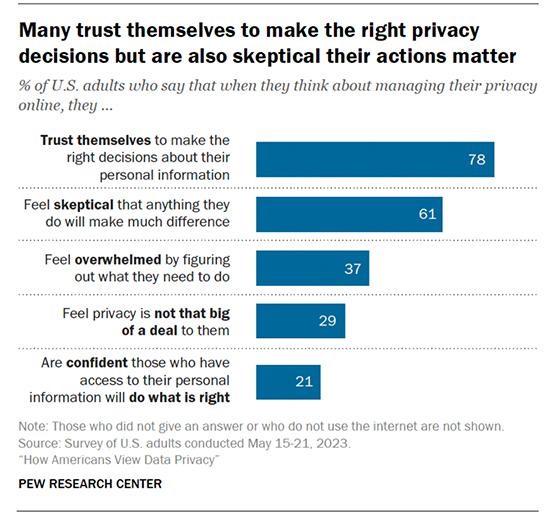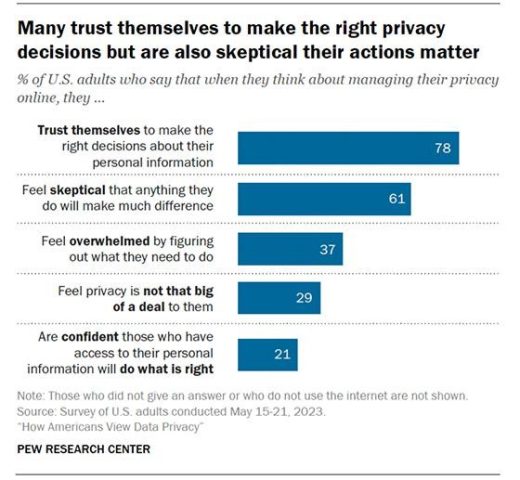Many Americans Still Don’t Know What Companies Do With Their Data
Many Americans Still Don’t Know What Companies Do With Their Data

For years I have been skeptical about the safeguards that companies like Google, Microsoft, Facebook and many others have put in place to protect my data. I keep using the platforms Although I do not have much confidence in their processes. Not so much Facebook, but apparently I’m not alone.
A recent survey from Pew Research found that a majority of North Americans ignore privacy policies. Some 56% frequently click “agree” without actually reading the content.
People are also largely skeptical that privacy policies do what they are intended to do. Some 61% believe the privacy policies are not effective at explaining how companies use people’s data, and 69% say they view these policies as just something to get past — because if the user does not agree to the policies, the app owner makes the user close the app and go away.
Pottery Barn, which is part of Williams-Sonoma, emailed an update last week that explains what they collect and how they use consumer personal data. Aside from the IP address, social media user names, passwords, and other security information for authentication and access, among other things, the company uses the data and click history to infer characteristics, behavior, and attitude to create a profile about the consumer.
Pew Research surveyed 5,101 U.S. adults between May 15 and May 21, 2023, using Pew Research Center’s American Trends Panel to better understand the view and experiences of people on these topics.
The Pew data shows 67% of North Americans say they understand little to nothing about what companies do with their personal data — up from 59% — despite Google and Microsoft and others outlining how their data is used to increase the relevance of information served up in advertisements and search queries.
And most North American consumers believe they have little to no control over what companies or the government for that matter do with their data.
Social media remains a major challenge when it comes to North Americans understanding how these companies take responsibility for user privacy. While the percentage fell compared with 2019, 73% feel this way about data collected by companies, and 79% about the government.
Americans have little faith that social-media executives will responsibly use data and protect user privacy. Some 77% of Americans have little or no trust in leaders of social media companies to publicly acknowledge mistakes and take responsibility for data misuse.
In fact, North American consumers are no more optimistic about the government’s ability to rein them in: 71% have little to no trust that these tech leaders will be held accountable by the government for data missteps.
Generative artificial intelligence (GAI) now raises questions in people’s minds about how the data is used. Among those who are familiar with AI, 70% have little to no trust in companies to make responsible decisions about using it in their products.
Eight in ten — or 81% — of those familiar with AI say its use by companies will lead to personal information being used in ways they will not be comfortable with, or 80% that weren’t originally intended.
There are also concerns about online privacy for kids, but parents must take responsibility. Some 89% of parents are very or somewhat concerned about social-media platforms knowing personal information about kids. And 85% of North Americans say parents hold a great deal of responsibility for protecting kids’ online privacy, 59% also say this about tech companies and 46% say it about the government.
Many people are overwhelmed by navigating options that technology companies provide to protect their privacy, they also are skeptical these steps will make a difference. And at times, people fail to take steps to safeguard their data because of their skepticism.
Some 78% of North Americans trust themselves to make the right decisions about their personal information, but a majority say they are skeptical that anything they do will make much difference.
Only one in five are confident that those who have their personal information will treat it responsibly.
(21)


